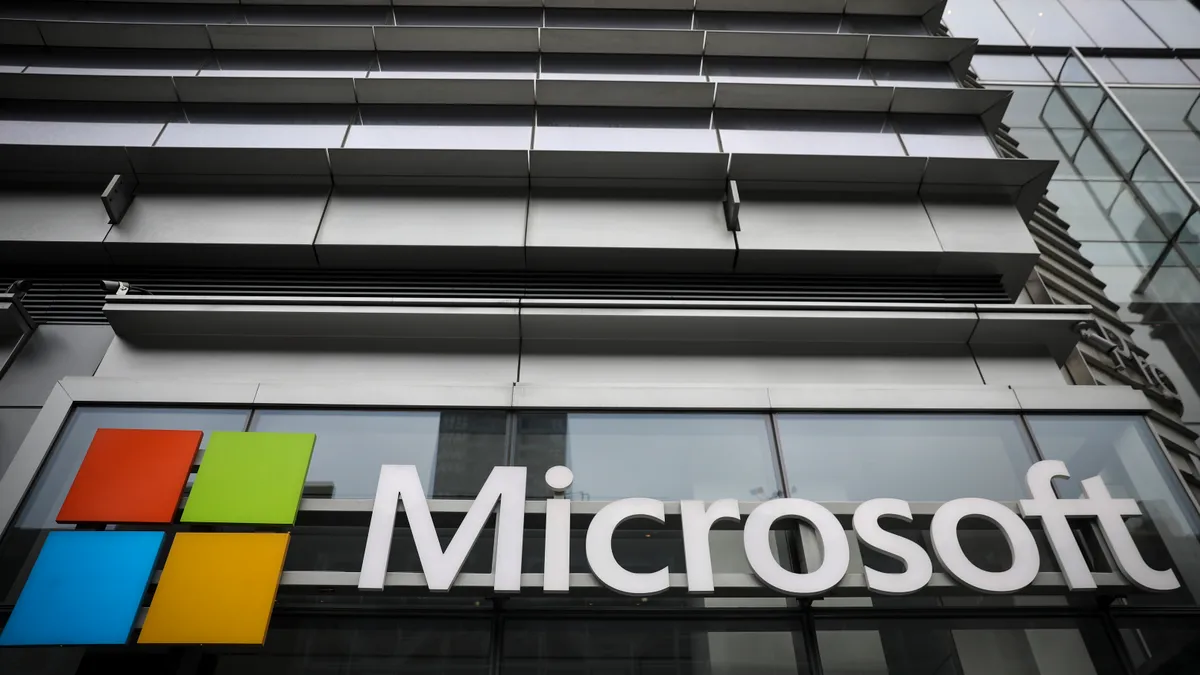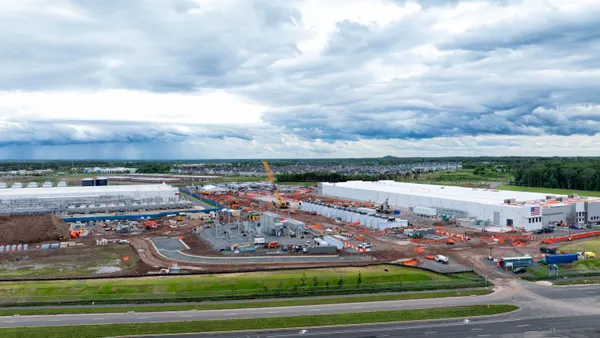Dive Brief:
- Newly migrated cloud-native AI workloads helped push Microsoft’s cloud revenue, which reached $110 billion for the fiscal year, an increase of 27% year over year, Chairman and CEO Satya Nadella said Tuesday, during a Q4 2023 earnings call for the three-month period ending June 30.
- Azure, the company’s public cloud platform, accounted for more than half of Microsoft’s total cloud revenue for the first time, Nadella said. Microsoft Cloud, a segment that includes Azure and other cloud services, posted $30.3 billion for the quarter, up 21% year over year, the company said.
- “The average annualized value for our large, long-term Azure contracts was the highest it's ever been, driven by customer demand for our innovative cloud solutions today, as well as interest in AI opportunities ahead,” Amy Hood, the company’s CFO, said during the call.
Dive Insight:
Big data, enterprise software and now generative AI are driving growth in Microsoft’s cloud business, as companies look to rationalize their tech stack, simplify operations and squeeze the most value out of IT spending.
The second-largest hyperscaler by market share was quick to deliver consumer-grade generative AI and then deploy it for enterprise customers in Azure. New AI-infused tools, including GitHub’s Copilot coding assistant, are now helping to lure new enterprise workloads to Azure, solidifying Microsoft’s cloud position.
“Azure continues to take share, as customers migrate their existing workloads and invest in new ones,” Nadella said. “We continue to see more cloud migrations as it remains early when it comes to long-term cloud opportunity.”
Intelligent cloud inched past Microsoft’s other segments, personal computing and productivity and business processes, for annual revenue in 2020 and became the most profitable of the three the following year, based on CIO Dive’s analysis of financial documents.
Intelligent cloud — which includes Azure, GitHub and enterprise services, among others — now commands more than 41% of Microsoft's revenue.
More and more, Intelligent Cloud is driving Microsoft’s revenue
Dominance in enterprise software helped Microsoft establish its cloud business, a dynamic that prompted a U.S. Federal Trade Commission inquiry into market competition earlier this year. A perceived edge in generative AI may provide a similar boost.
“Lots of these AI products pull along Azure because it's not just the AI solution services that you need to build an app,” Hood said. “When you're building these, it requires data and it requires the AI services. So, you'll see them pull both core Azure and AI Azure along with them.”
Hood cautioned that AI gains would accrue incrementally. “Growth from our AI services will be gradual as Azure AI scales and our Copilots reach general availability dates,” Hood said.
Gains are likely to be offset by the infrastructure upgrades that are needed to handle the high-powered compute and storage AI requires.
“To support our Microsoft Cloud growth and demand for our AI platform, we will accelerate investment in our cloud infrastructure,” Hood said. The broad buildout encompasses data centers, networking equipment and graphics processing units.















